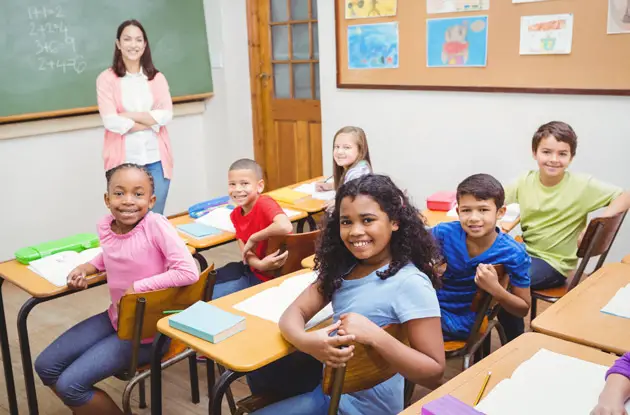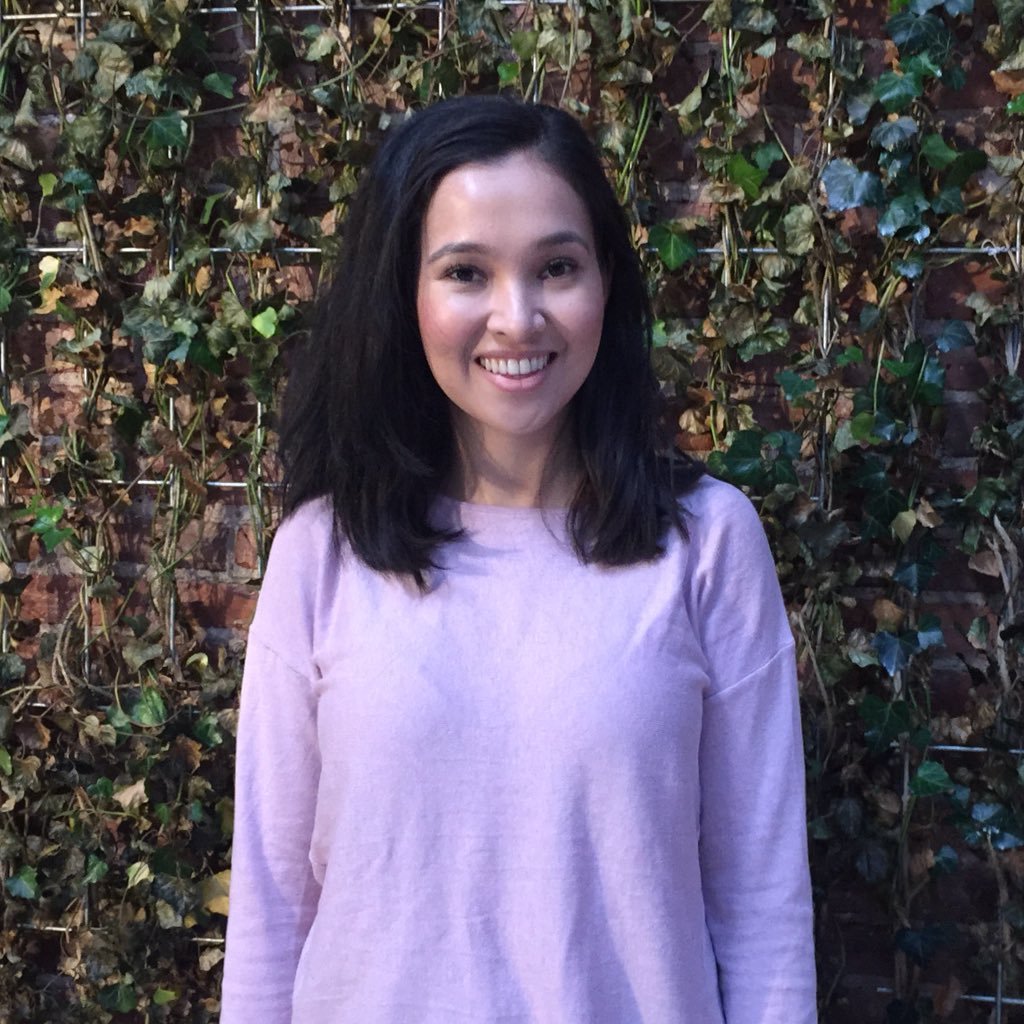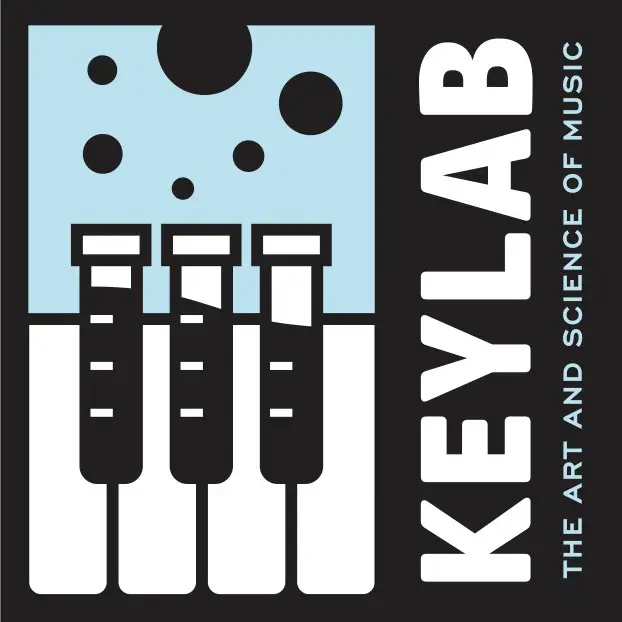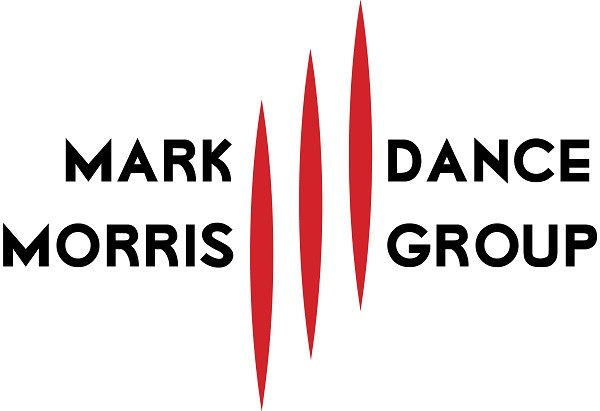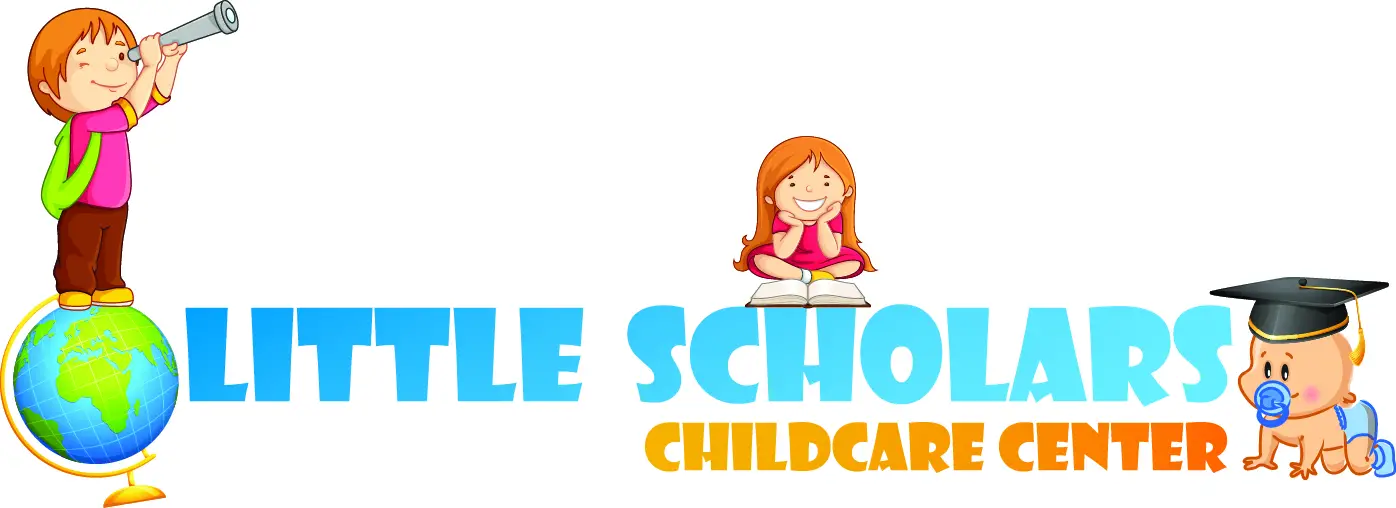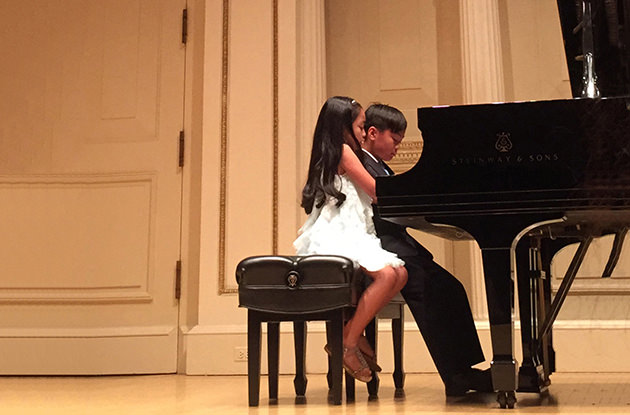
The Benefits of Playing a Musical Instrument
Get kid-friendly activities sent to you!
Get the Best Kid-Friendly Activities
Sent to You Weekly!
Musical Methods
Among the first decisions parents need to make when deciding on music lessons for their child is what teaching method to pursue. Many music teachers use the Suzuki method of teaching, developed by a Japanese violinist named Shinichi Suzuki, in which parents learn to play alongside their children. The child would take private lessons along with group classes. (This is the method that I studied.)
Other methods include the Orff method, which engages kids in music using percussion instruments such as the glockenspiel or xylophone; and the Kodaly method, which enforces singing as the foundation of musicianship.
Some music schools, such as Bach to Rock, offer the Suzuki method, along with their own curriculum for kids to learn a mix of classical, pop, and rock music.
“Parents are surprised when they find out that a violin student can learn Katy Perry in addition to learning how to play ‘Twinkle, Twinkle, Little Star’ on the violin,” Carson says. “One comment that I get all of the time is, ‘I can’t believe how fun this is!’”
The Music Institute of Long Island offers Kindermusik classes for young children, a Germany-based curriculum designed to encourage musical play and movement.
Private vs. Group Lessons
Children may be enrolled in both private or group lessons—or a mixture of the two—as both are beneficial and provide different experiences for the student.
Young children might consider starting off by taking lessons with one or two other students, then transitioning to a private lesson around age 7. Private lessons are highly encouraged because the teachers can better review the students’ techniques, and one-on-one instruction tends to instill in kids a sense of responsibility.
Group lessons allow kids to play as an ensemble, which teaches them to play cohesively and perform together. For example, the Music Institute of Long Island performs at nursing homes and other venues as a way to give back to people in the community, as well as to build confidence in playing for an audience. Bach to Rock holds a Battle of the Bands competition for its rock band program, in which the kids have the responsibility to listen to the members of their group and play at the same tempo.
If a child is very eager to play, it is possible that she can begin at age 3. Otherwise, age 6 or 7 might be more appropriate, as that is when children begin learning how to read and are more focused and physically developed.
When sitting in lessons, Kushner advises parents to record their children using a video camera or tape recorder and to take notes to make sure that the child takes the corrections from class and applies them at home.
“Everything takes time,” Kushner says. “We improve and sometimes we plateau, just like in everything else. But if they’re not putting in the time, they can’t expect to do fabulously.”
The Payoff
Something that most parents may be surprised to learn once their child begins music lessons is how much dedication and commitment is required. Just as a child might study over and over for a test, he must be ready to constantly practice his instrument to become more advanced.
“If [children] take SATs, ACTs, math tutoring, English tutoring, and Kumon, [those teachers] expect them to work there,” Kushner says. “We expect them to work at a violin lesson or piano lesson, as well.”
Parents can motivate and support their children by giving them words of encouragement.
“The attitude of the parents, and just being ready to be a support and as enthusiastic as their kids, is important,” Carson says.
As for me, my mom would encourage me to enter music competitions, and even though I only ever placed among the winners once in the 12 years I took lessons, the experience made me learn how to pick myself up from failure and move on. It was not until adulthood that I realized how valuable this was for me.
Even if my parents and I butted heads when I did not want to practice, it disciplined me to refocus my energy to buckle down and chip away at improving, which showed that hard work and dedication can take you far. If it were not for music, I do not think I would have had the ambition and drive to push myself through Advanced Placement classes in high school, move 5,000 miles away from home for college, and make a living here in New York City, arguably the most competitive city in the world. All thanks to that unforgettable TV concert nearly 20 years ago.
Main image: Christian and Jessica Li of Manhasset perform at the Music Institute of Long Island’s Gala Concert at Carnegie Hall in June.
Photo courtesy of Sophia Lee
RELATED:
Music Camps in the New York Area

